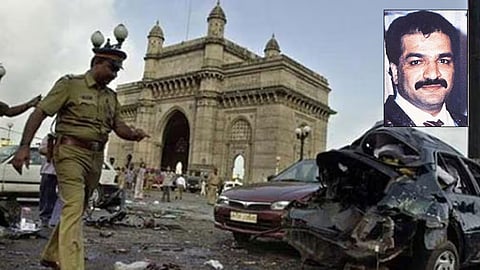The Hindu-Muslim conflict that simmered in society also found its way into the underworld, and it reached a boiling point with the demolition of the Babri Masjid in 1992. Dawood Ibrahim accepted Tiger Memon's demand for revenge, leading to the infamous 1993 Mumbai serial blasts and the subsequent communal riots. In the aftermath, Chhota Rajan, who had been Dawood's most trusted lieutenant, revolted. D Company faced a split, with Chhota Rajan forming a new gang that included individuals like Sadhu Shetty, Jaspal Singh, Mohan Kodian and others from the Hindu community. This period marked the onset of the bloodiest gang war in Mumbai's history, with violent clashes between the factions escalating tensions in the city.
The Underworld of Hindus
Chhota Rajan strategically used Hinduism to influence his new gang, positioning ISI (Inter-Services Intelligence) as an enemy and attempting to promote the Hindu underworld as a counterforce to the Muslim underworld in Maharashtra's political landscape. He forged an alliance with Bablu Srivastava of Uttar Pradesh under the banner of 'Hindu Goonda Unity.' Even before Chhota Rajan's attempt, gangs led by Vinod Kumar Sharma (Chairman) and Arun Gawli had been working to break the dominance of D Company. Dawood Ibrahim sought the assistance of the Ashwin Naik gang, the State Government, the police, and even his associates to neutralize the threat posed by Gawli. After Gawli's imprisonment, the most formidable adversary Dawood faced was Rajendra Nikhalje, aka Chhota Rajan, who was once considered one of his trusted associates (Navaratnas). It is generally assumed that Chhota Rajan drew inspiration from Gawli's emphasis on Hinduism in shaping his own criminal enterprise. The complex interplay of religion, politics, and organized crime continued to shape the contours of the Mumbai underworld.
A season of setbacks
As the investigation into the Mumbai blasts intensified, Dawood began to feel increasingly insecure in the city. Simultaneously, Chhota Rajan's campaign of violence dealt significant blows to D Company. Faced with mounting threats, Dawood was compelled to make Dubai his permanent base. Initially, Sheikh Sagar bin Abdullah Hamil Al Ghazni, who was related to the local royal family, sponsored Dawood's visa. However, the arrangement could not be sustained for long due to an extradition agreement between India and the UAE to return criminals, prompting Dawood to seek refuge elsewhere.
That explains Dawood's seeking refuge in Karachi. Despite the difficulties, he managed to bring his wife, son and four daughters to Karachi. Tragedy struck when his 12-year-old daughter succumbed to malaria in Karachi. Despite this heartbreaking loss, Dawood demonstrated resilience and a determination to recover from setbacks. In Pakistan, Dawood embarked on building a new business empire, establishing a significant presence in Karachi. The city, in turn, became a stronghold for the underworld, serving as a base for Dawood's activities and influence in the region.
The traditional underworld leaders and Altaf Hussain's MQM leaders could not tolerate the presence of a foreigner, that too an Indian, reigning in Pakistan. The discomfort and unease heightened when Dawood began to mediate in a manner reminiscent of Karim Lala. Despite this opposition, Dawood persisted in his operations, reigning undaunted in Pakistan. His security was maintained by a cordon of retired and serving ISI officers. In return, there are speculations and allegations that D Company spied for Pakistan in Mumbai, helped identify RAW agents and had huge financial transactions for these covert dealings.
Last frame
Dawood Ibrahim Kaskar's notoriety has earned him the fourth position in Forbes magazine's list of the top 10 dreaded criminals. Following revelations about his connections with Osama bin Laden, Dawood was declared a global terrorist by the US. This designation carries serious consequences, including international efforts to confiscate his assets globally.
The assassination of Dawood's confidant and financier, Sarath Shetty, by Chhota Rajan's gang was a significant strike on D Company. The loss of Shoaib Khan, a key figure in many important operations, also dealt a heavy blow to Dawood's network. Despite these setbacks, Dawood managed to regain influence, to the extent that some allegations suggest he could even potentially disrupt peace talks between India and Pakistan.
The End
While in school, Shakeel Ahmed Babu harboured aspirations of joining the army. But fate scripted it differently, leading Chhota Shakeel of D-Company to seek refuge in an enemy country, unable to set foot in his hometown. This shift meant being fathoms away from his loved ones and distant memories. Many gang leaders have such histories. But unlike figures such as Karim Lala and Haji Mastan, this era is not characterized by repentance or remorse. In this world, sins committed are rarely forgiven, and the past continues to cast its shadow.
Destined to spend the rest of their lives among Arabs who may look down upon South Asians or skeptical Pakistanis might not be the most daunting fate for these underworld kingpins. The uncertain and perilous nature of their lives continues to be a constant undercurrent. In the midst of their ceaseless struggles against both enemies and the law, an unexpected bullet or a drone strike could bring an abrupt end to their stories, with the epithet of the final frame reading, 'The End'.


